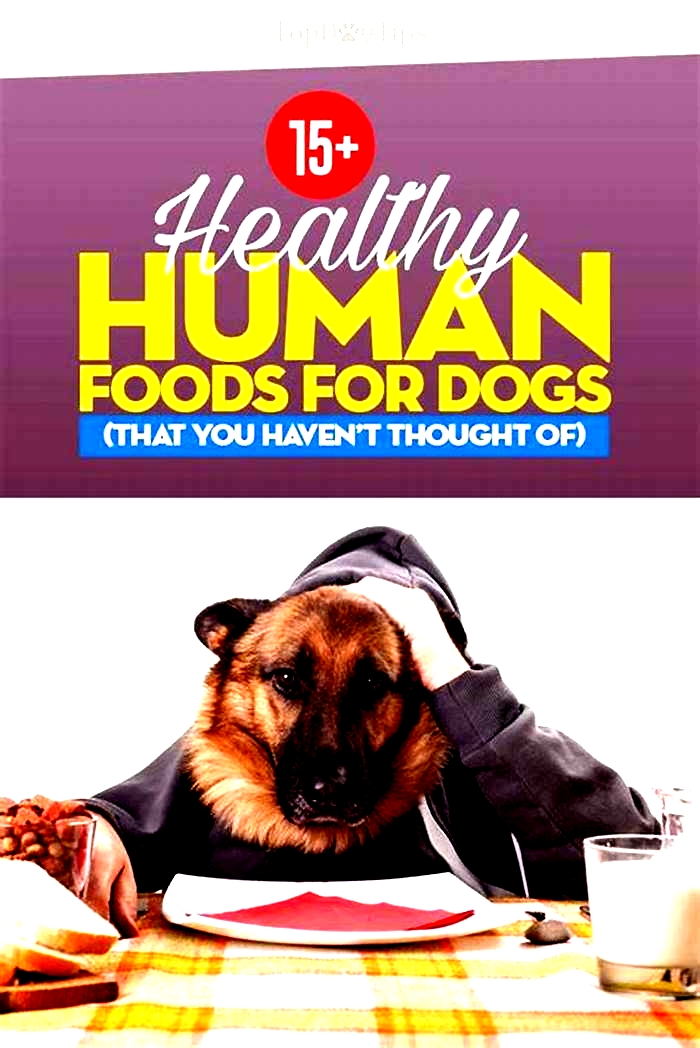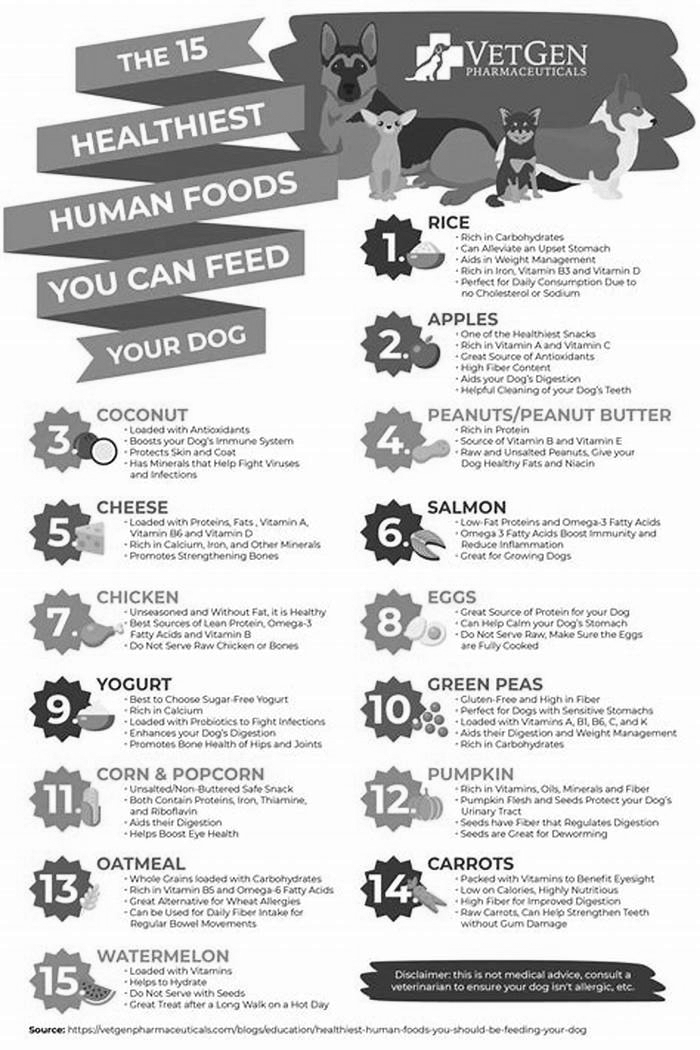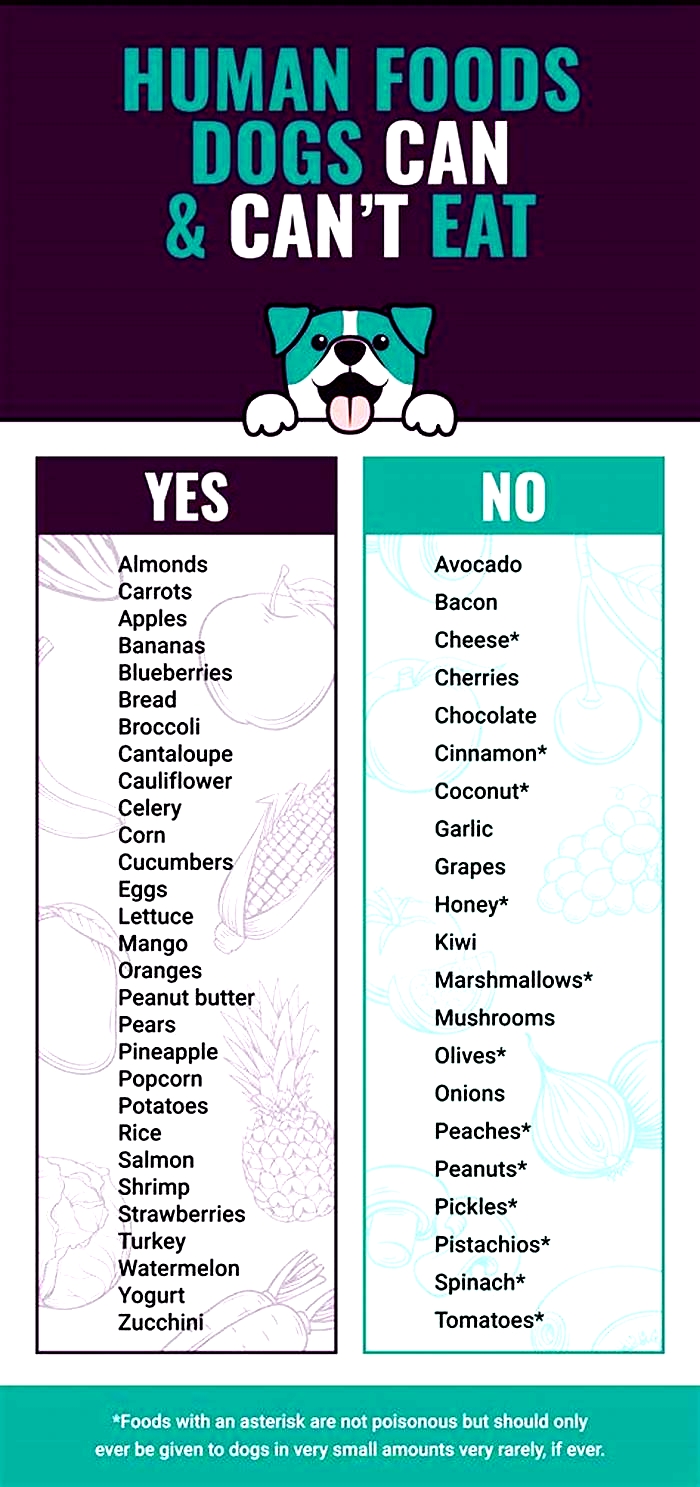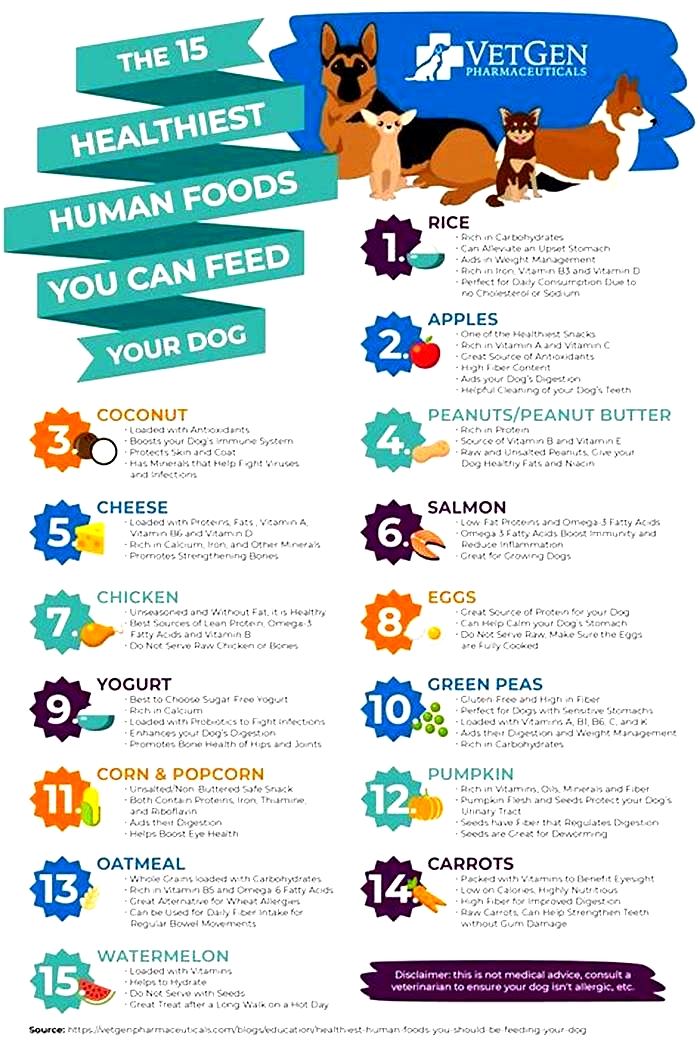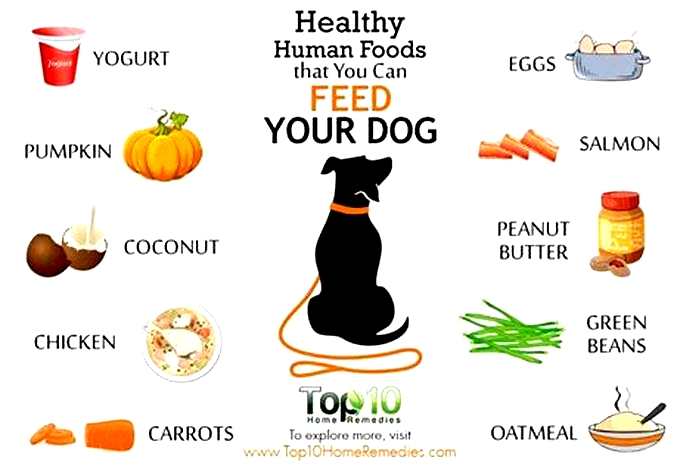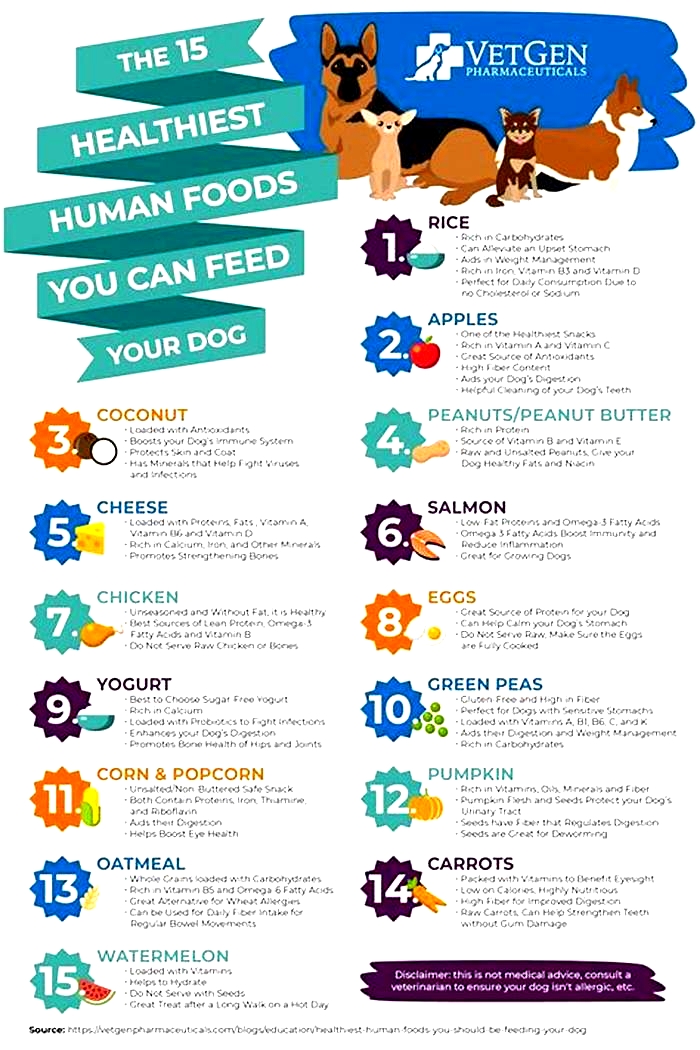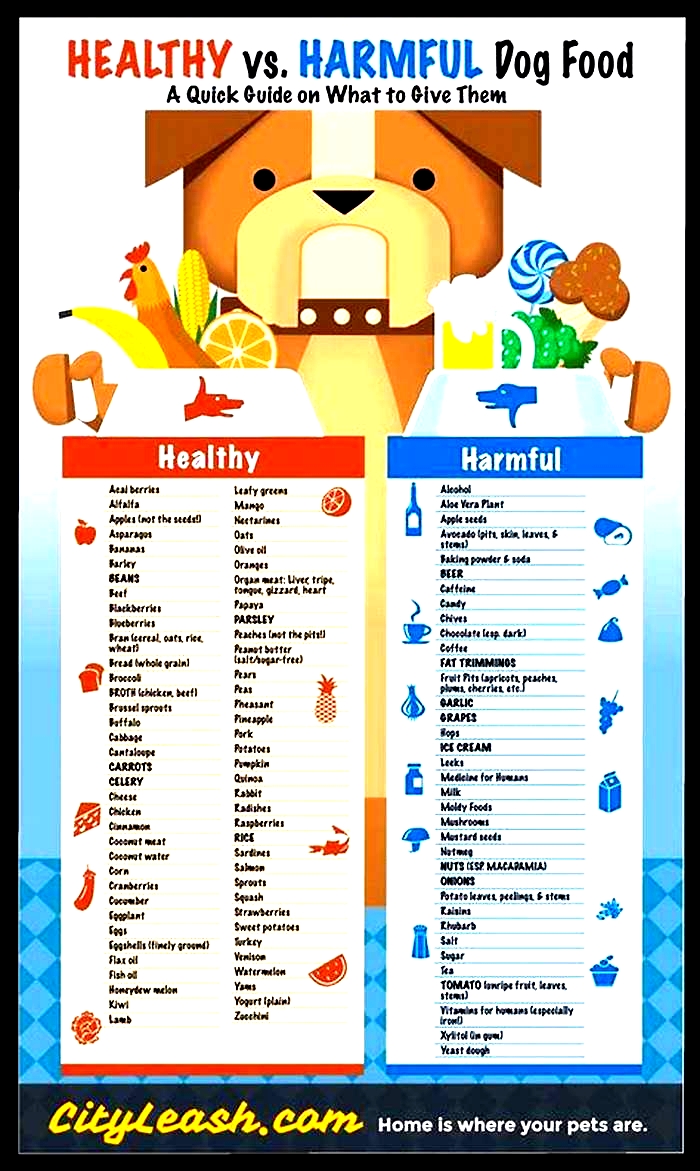top 10 human foods for dogs
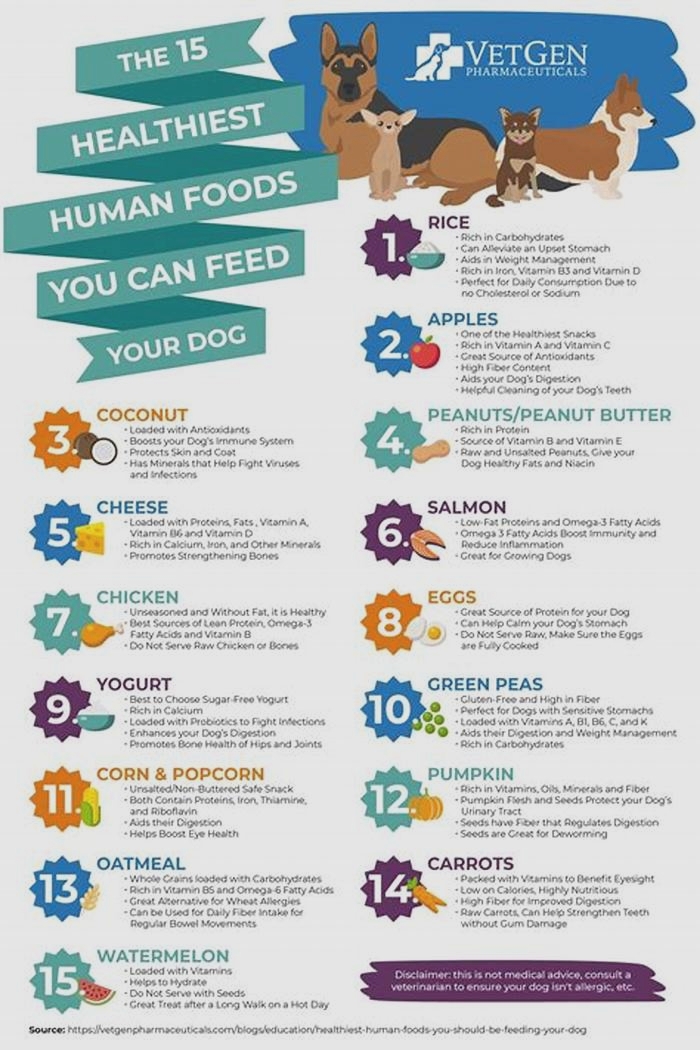
10 Human Foods Dogs Should Not Eat
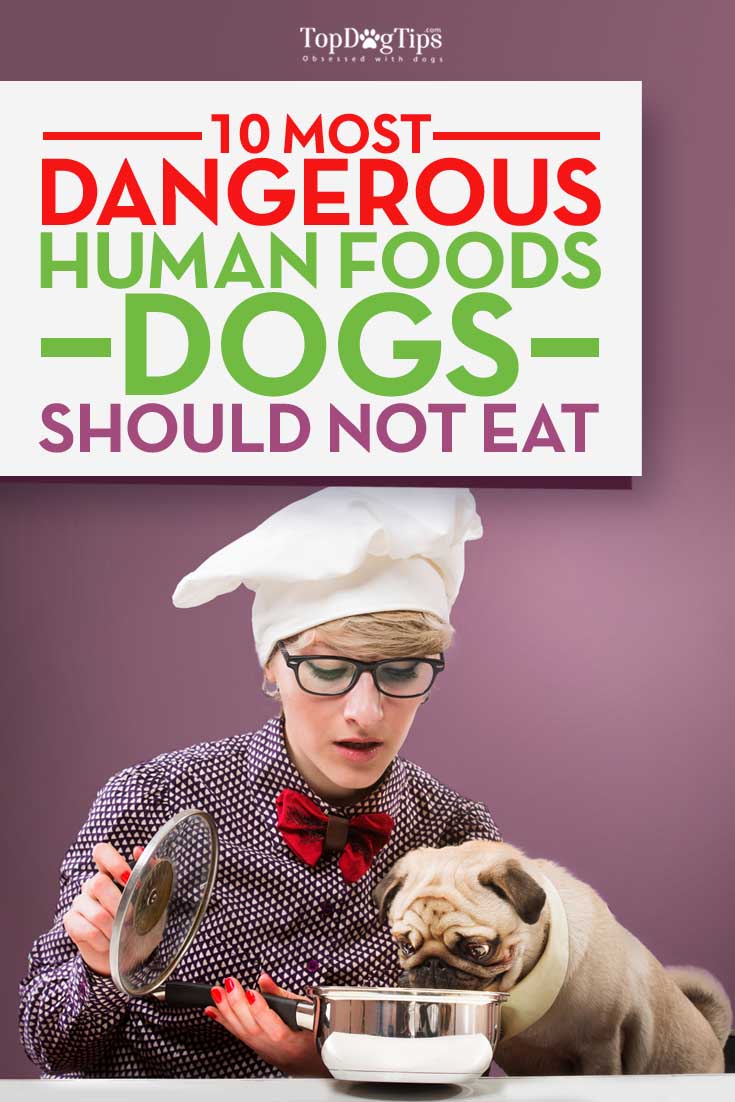
A canine body and a human's body just don't work the same way, but try telling your dog that!
Much as it's tempting to give your pooch a little nibble of people foods, dogs are actually susceptible to getting sick from eating human foods. Some of them contain toxic substances for dogs but not for humans.
However, there are, of course, also many different foods people eat that are good for your dog.
Many, but not all, fruits and vegetables can havegreat health benefitsfor canines.
Lean protein and home herbs can be beneficial to our furry friends as well.
Be sure to do your research before feeding your pet any type of human food.
Some people food can cause minor irritation to your dog's skin or short-lived side effects, including nausea or diarrhea, but some can have severe effects and even be fatal.
Here's a list of ten everyday foods and ingredients some of which may surprise you that should never be given to your dog.
Foods Dogs Should Not Eat: 10 Human Foods That Are Dangerous To Dogs

10Chocolate

Probably the most well-known food on this list, chocolate is bad for your dog because it contains caffeine and theobromine.
Theobromine is a stimulant that will affect your dog's heart, nervous system, and kidneys.
As little as one ounce of milk chocolate per pound of body weight is enough to be a fatal dose.But the most dangerous for them is dark chocolate.
Symptoms of chocolate toxicity can include extreme thirst, diarrhea, pacing, excessive or nervous energy, panting and shaking, and even seizures.
Remember to be careful with other foods that may contain chocolate, such as cookies, cake, ice cream, and candies.
Apart from the chocolate, the fats and sugars are bad for your dog too.
If you believe your dog has eaten chocolate, don't wait to see symptoms, as it can take anywhere from four hours to a whole day to show up.
Call your vet immediately and ask for advice.
RELATED:Dog Food for Dogs with Diabetes: What You Need to Know
9 Tea, Coffee, and Soda
Just like chocolate, tea, coffee, and soda contain caffeine, a stimulant that is bad for your dog.
Caffeine is a methyl xanthine and can overstimulate the heart, increasing the heart rate and can cause cardiac arrhythmias at high concentrations.
On top of this, soda contains high concentrations of sugar, which isn't good for your dog either.
If you're a gardener, make sure you don't use coffee grounds as a fertilizer if your dog canaccess the area.
8 Xylitol
Xylitol is an artificial sweetener that is found in many foods and drinks, often found in baked goods, candy, and diet products.
While it's perfectly safe for human consumption, it can be highly toxic for your dog.
Xylitol causes a spike in insulin, in turn leading your dog's blood sugar levels to dip.
Signs of xylitol poisoning can include lack of energy, coordination problems, and vomiting.
Even very small amounts of xylitol can cause symptoms such as seizures and liver failure, so be extremely vigilant when feeding your pet anything that isn't specifically adog treat.

7 Salt and High-Sodium Snacks
Like in humans, too much salt can be extremely toxic to your dog.
Some high-sodium salty foods include chips, pretzels, popcorn, ready-made meals, takeaway meals, and many other savory snacks.
Too much salt can cause symptoms such as excessive thirst and urination, vomiting and diarrhea, lethargy, loss of coordination, and abnormal fluid accumulation within the body, and it is toxic to the kidneys.
Higher doses can induce shaking and seizures leading to coma and death if not treated immediately.
RELATED:Vet-Recommended Safe Dog Treats for Snacking
Be careful with soups and stews, too, as stocks and broths are often very high in salt.
It isn't just the food you need to be careful with either; some regular household items, such as driveway de-icers, can contain high levels of salt, so always make sure you keep any cleaning and household products locked away and out of your dog's reach.
Also, be careful if you take your dogto the beach, as he can ingest seawater.
If you think your dog has ingested salt or you notice any of the above symptoms, seek veterinary attention immediately, as salt toxicity can be treated with IV fluids if caught in time.
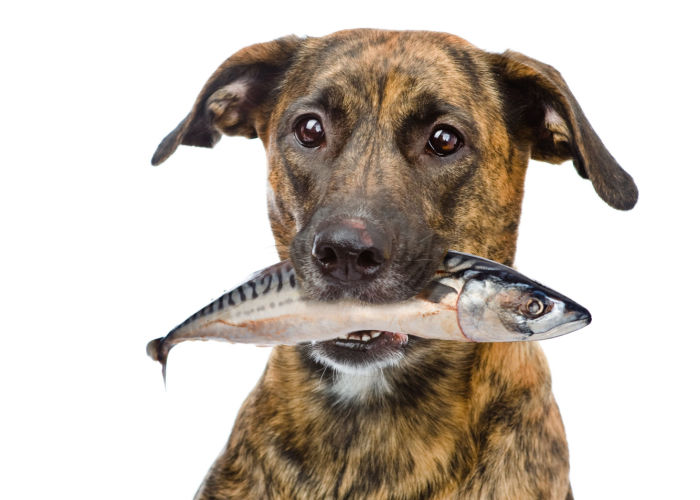
6 Raw Fish
Consumption of raw fish, particularly red, oily fish such as salmon and trout, can cause vitamin B deficiency.
The symptoms can include loss of appetite, vomiting, seizures, and in some cases, death.
Raw salmon can make a dog sick when eaten as it contains a bacteria calledneorickettsia helminthoeca.
If you have been preparing raw fish, or any raw meat at all, be extra careful to dispose of any leftovers properly and cover trash bins.
If you take your pet along with youwhile camping, hiking, or doing any type of fishing, be sure to keep any leftovers in a sealed bag until you can dispose of them properly so that your dog cannot get to them.
ALSO READ: Lets Talk: Raw Dog Food Diet Dietary Concerns, Benefits, and Risks

5 Yeast Bread and Cakes
Yeast is a fungus that promotes the rise of bread and other yeast products such as cakes and donuts.
We all know how good a great bread or cookie dough can smell while it's rising, and your dog may think so too.
Ifhe ingestsraw yeast dough, the dough will continue to rise in his stomach, which will cause him a lot of gastrointestinal discomforts as it causes the belly to swell.
In severe cases, this can rupture the intestines in your dog's stomach.
Additionally, yeast can continue to ferment and turn into alcohol after it's been eaten, causing symptoms of alcohol poisoning for your pup.
If you're a home baker, make sure you keep any yeast dough covered and far out of your pet's reach.
ALSO RELATED: Can Dogs Eat Pizza?
4 Onions and Garlic
While your dog is unlikelyto chewon a bulb of garlic, remember that many foods he might find tempting contain onions and garlic, such as Italian food, stews, soups, and pies.
The onion family contains toxic compounds that can cause anemia in your dog, and you may notice symptoms such as dehydration and extreme lethargy.
Because of how common onions and garlic are in many everyday foods, especially meaty dishes that your dog would be giving you the puppy-dog eyes over, it's important to be very careful with treating your pup to anything that you haven't prepared yourself.
Also, be wary of feeding him snacks like chips that often contain onion powder.

3 Milk and Dairy Products
Like onions and garlic, dairy is a hard one to avoid and is something that your pup probably drools over!
But you must never feed your dog anything containing milk or milk powder, cream, cheese, yogurt, or ice cream as dogs are lactose intolerant, and they will experience uncomfortable gastrointestinal symptoms such as diarrhea, gas, and bloating.
RELATED:How to Use Pet Treats to Keep Your Dog Happy
Many treat foods designed specifically for pets might come in milk or cheese flavors but have the irritating lactose removed, so it's safe for them to enjoy.
In fact, there are multiple manufacturers that make ice cream for dogs, so your pooch can enjoy a refreshing treat without digestive distress.
While not fatal like many of the others on the list, consumption of dairy will make your dog feel uncomfortable and unwell, so it's best to avoid anything containing dairy altogether.
2 Macadamia Nuts
Macadamia nuts are often found in baked goods such as cakes and cookies and sometimes in flavored trail mixes or nut mixes that your dog might betempted to eat.
The reason for its toxic effect on dogs is not yet known, but macadamia nuts can cause weakness, depression symptoms, overheating, swelling of the legs, tremors, and loss of control over their movements.
All of which is frightening for both the dog and his owner.
If you think your dog may have consumed anything containing macadamia nuts, call your vet, as the symptoms can be treated if caught in time.

1 Grapes, Raisins and Currants
Grapes contain a toxin that causes severe liver damage and kidney failure in canines.
These are another food that can be found in many things such as cakes, bagels, cookies, and trail mixes, as well as some savory dishes like stuffing and tagines.
Ingestion can cause symptoms like vomiting, diarrhea, thirst and excessive urination, tiredness, and dehydration.
Also, be careful if you grow any grapes in your garden, and make sure neither your dog nor anyone else's can access the area.
Toxicity can occur even with very small amounts, so never allow your dog to eat anything containing grapes, raisins, or currants.
If you think your dog might have eaten something with a grape product in it, call your vet immediately to seek treatment advice.
ALSO READ: Can Dogs Eat Lentils? 5 Health Benefits and 4 Risks
FAQs on Toxic Food For Dogs
Are eggs good for dogs?
Eggs are perfectly safe and good for dogs. They are high in protein and also contain linoleic acid, Vitamin B2, B12, and water-soluble Vitamin A.
You can give it to them boiled, sunny side up, or scrambled, but it should be without oil, salt, and other flavorings.
And yes, you can allow them one egg a day if your dogs enjoy it. Just make sure to limit it to one, as too much can make them overweight because of its high-calorie content.
Can dogs eat bread?
As we discussed, doughs with active yeast can upset your dog's digestive system, but when baked as bread, generally, dogs can eat them.
But it's important to note that bread doesn't have nutritional value to dogs.
That said, they should only be given in moderation as an occasional treat.
Can dogs drink milk?
As we've already discussed above, dogs generally can't drink milk. but there are exceptions!
If you really want to give them milk, opt for lactose-free or plant-based ones, like soy milk, oat milk, or almond milk.
These don't have the usual ingredients that cause diarrhea, upset stomach, and pancreatitis in dogs.
Human Foods Dangerous for Dogs Final Thoughts
We sure love our dogs to enjoy as much as we do, but not everything humans can eat is safe for them!
This is why dog owners, especially when making homemade dog food, should be aware of which ones are the healthy food to feed their pets and which ones are better left on the kitchen counter or in the fridge.
Make sure to protect your pup from getting sick by avoiding these dangerous human foods in its diet!
40 Vet-Reviewed Human Foods That Dogs Can Eat Safely
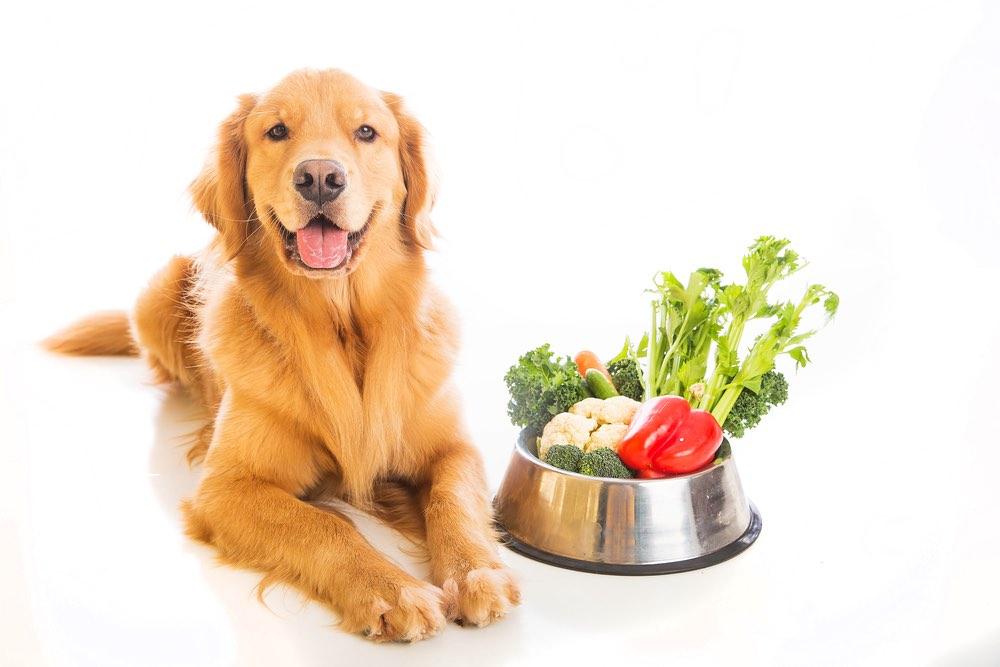
The information is current and up-to-date in accordance with the latest veterinarian research.
Learn moreIts one of the simple joys of owning a dog: feeding it the same food that youre currently eating. However, you have to be careful with what you give your pup, as some human foods can be toxic for dogs.
Thats not what this list is about, though. This list is a celebration of all the foods that you have in your house that you can safely share with your pup. Lets dive in!
The 40 Human Foods That Dogs Can Safely Eat
1. Carrots
Carrots arent just for Bugs Bunnytheyre fantastic for your dog as well. It doesnt matter if you feed them to your pooch raw or cooked; theyre full of vitamins, minerals, and fiber.
They dont have many calories either, so you can feed your dog as many carrots as theyll eat. Better still, they can help clean off plaque from your dogs teeth while they crunch on them. We do recommend peeling them first, though.
2. Chicken
Chicken is fantastic for dogs, as its lean meat thats high in protein. Dogs love it too, so it makes a wonderful reward for when your pup has been an especially good dog.
If youre going to serve your dog chicken, though, its best to serve it plain. It doesnt much matter how you prepare it, but its best if you dont add any condiments or seasonings. Your dog wont miss themand they certainly wont miss the salt and other additives inside them. Never give your dog cooked chicken bones as they can break into sharp pieces injuring or perforating their mouth or digestive system.
3. Apples
Full of antioxidants and vitamin C, apples are a wonderful treat for your pet. Many dogs love how sweet they are too, so you shouldnt have to work too hard to get your pooch to wolf them down.
Apples are a great source of fiber as well, so they can help keep your dog regular. Just dont feed them rotten apples, though, as those can lead to alcohol poisoning. Also, do not allow them to eat the seeds or stems!
4. Peanut Butter
Its incredibly rare to find a dog that doesnt love peanut butter. It makes a great training reward, or you can just smear some of it on a chew toy to keep your dog occupied for hours.
Luckily, peanut butter can be good for dogsin moderation. Its full of protein and healthy fats, and it also has vitamins B and E. Buy the stuff that doesnt have added sugar, though, and make absolutely certain that it doesnt contain xylitol, which is toxic for pups.
5. Eggs
The next time that you get up and make yourself breakfast, consider frying up an egg for your dog as well. Eggs are full of protein, and they also contain virtually every important vitamin and mineral.
Dont give your pooch raw eggs, though, as they could carry salmonella. You can also mix up a fried egg with your dogs kibble to entice a picky dog.
6. Pork
Just like chicken, pork is full of protein, so its great for helping your dog build lean muscle. However, its a fatty meat, so only serve it to your pet in moderation, as it can cause inflammation or pancreatitis in large quantities.
Dont salt your pork before you serve it, and dont give your pup bacon or processed ham, as those are both full of sodium.
7. Salmon
Cooked salmon is one of the best foods that a dog (or a person) can eat. Its lean, full of protein, and stuffed to the gills with omega fatty acids. These antioxidants do everything from fighting inflammation to improving skin quality.
Never give your dog raw fish, though. Raw salmon may contain a parasite that causes salmon poisoning disease, which can kill your pooch.
8. Blueberries
Blueberries are considered a superfood due to all the vitamins and antioxidants inside them, and theyre also packed with fiber. If you can convince your pup to eat them, you should feed them as many as theyll take.
Theyre especially good for senior dogs, as they can improve all manner of age-related conditions.
9. Cucumbers
Not every dog will eat a cucumber, but if yours will, it makes a great, low-calorie treat or reward for dogs that need to lose a little weight, as theyre mostly water. You can feed your pup quite a few without any adverse effects on their waistline.
They have their fair share of vitamins and minerals too. Theyre especially high in vitamin K, which can help prevent bleeding problems in dogs.
10. Watermelon
If you want a sweet treat for your pup, watermelon is a good choice. Since its so full of moisture, its fantastic for dehydrated dogs. It also has vitamins A, C, and B-6.
Dont give them the seeds, though, as those can cause an intestinal blockage. Also, remove the rinds first; while theyre not toxic, they can cause an upset stomach, giving you quite a mess to clean up.
11. Green Beans
Green beans are packed with calcium, iron, and vitamin K. You can give them to your pooch cooked or raw, and many dogs will gobble them right up.
Serve them to your pup plain and unsalted, and its best if you cut them up first so your dog wont choke on them.
12. Turkey
Much like chicken, cooked turkey is safe and healthy for dogs. Its high in protein and is excellent for your pet. Thats why its included in so many kibbles.
Dont give your dog deli meat, however, as its loaded with sodium. Also, if the turkey has any fat on it, cut it off first, as that can cause pancreatitis in large quantities. Avoid giving your dog a cooked turkey bone as it can break into dangerous sharp pieces.
13. White Rice
White rice doesnt necessarily have much in the way of nutrients for your dog, but its extremely easy for dogs to digest. As a result, its often prescribed for animals with upset stomachs, especially when paired with plain, boiled chicken.
It has a fair amount of sugar, though, so you should only serve it in moderation, its avoided in dogs with diabetes.
14. Dairy
You have to give it to them in moderation, but a little bit of dairy is fine for your dog to eatassuming that theyre not lactose intolerant, of course. Whether its a small piece of cheese or a teaspoon of plain yogurt, you can give it to your pup as a treat every now and then.
Yogurt is especially good, as its full of probiotics that are wonderful for your dogs digestive tract. You can even freeze it and use it as a treat on a hot day.
15. Bananas
Bananas are packed with magnesium, which is good for a dogs bone health. Theyre also full of sugar, so you dont want to give your dog too many. Theyre also full of potassium, biotin, and fiber, all of which are necessary for your dogs health.
16. Asparagus
Its a rare dog indeed that will accept asparagus as a treat, but if you can convince your pup to try this stinky vegetable, theyll enjoy tons of fiber as a result. Be sure to cook it first, though, as raw asparagus can wreak havoc on a dogs digestive tract.
17. Spinach
Whether cooked or raw, spinach is full of iron, vitamin K, and a variety of antioxidants. Its incredibly healthy for both you and your pup.
Its unlikely that your dog will eat spinach on its own, but you may have more luck if you mix cooked spinach in with their kibble. Its worth a shot, anyway.
18. Pumpkin
If your dog is ever backed up, adding pumpkin to their diet could clear things up in a big way. Its full of fiber and adds heft to their bowel movements, making them both more regular and easier to clean up (and possibly orange in color).
19. Plain Popcorn
No, your dog cant have the good stuff, so dont offer them anything thats coated in salt, oil, and butter. However, plain popcorn is full of zinc, magnesium, and phosphorous, all of which are important parts of any dogs diet.
Be sure they dont get any kernels, though, as those can crack teeth and cause intestinal blockages. Put the bag safely out of reach too, as many dogs can choke themselves trying to eat it.
20. Sweet Potato
It seems like sweet potato is in just about every high-end dog food these days and for good reason: Its packed with fiber, vitamins A and C, and potassium. Its used in place of grains in many kibbles, so it should help keep your dog full without causing digestive issues.
21. Green Peas
Peas are excellent for dogs, as they have tons of A and B vitamins, as well as zinc, iron, and potassium. Theyre also surprisingly high in protein, although be aware that dogs dont get all their necessary nutrients from plant proteins as they do from animal proteins. Just make sure peas are given in moderation, diets that use high amounts of peas as a source of protein in dogs diets have been linked to the potential development of heat issues in dogs.
22. Celery
Many people claim that celery is nutritionally uselessbut it is high in fiber and it is safe for your dog to eat.
23. Cooked Potatoes
Dont ever feed your dog raw or green potatoes, as those can kill them. Cooked potatoes, on the other hand, have plenty of vitamins C and B6, as well as iron.
24. Corn
Corn gets a bad rap because its used as a cheap filler in many commercial dog foods. As an occasional additive to a healthy kibble, though, corn can give your dog protein, linoleic acid, and fiber. Just feed it sparingly. Never give your dog corn on the cob as this represents a choking hazard.
25. Oatmeal
Oatmeal is gentle on a dogs stomach, making it a good option for a dog with tummy troubles. Its also a good substitute for wheat in gluten-intolerant pups.
26. Cashews
Cashews contain calcium, protein, magnesium, and a handful of important antioxidants. Many dogs love them, but you should only feed them sparingly, as theyre full of fat (not to mention the fact that theyre expensive).
27. Shrimp
Shrimp is good because its low in fat and calories yet high in protein. It also has phosphorous and vitamin B-12. On the downside, though, its loaded with cholesterol, so dont give your dog too much. Also, remove the tails first.
28. Soy
Soy is another ingredient thats often demonized because its used in cheap, low-quality kibbles. However, its safe for dogs to eatbut many dogs dont tolerate it well, so be sure to monitor your pup after feeding it to them.
29. Ice Cream
Most ice cream is safe for dogs to eat, but that doesnt mean they should. Its extremely high in fat and sugar, so dont give your pooch more than a taste. Also, check the ingredients to make sure there isnt anything toxic in theremany diet desserts use xylitol as a sweetener.
30. Bread
Unless it has raisins or other toxic ingredients in it, bread is perfectly safe for dogs to consume. Its full of empty carbs, though, and it doesnt offer much in the way of nutritional benefit.
Theres one time that bread can come in handy, however. If your dog has eaten something that they shouldntespecially something that could puncture their digestive tractfeeding them several slices of bread could provide a protective barrier against puncture wounds until they pass it.
31. Honey
Honey is great for allergy-prone dogs like Pit Bulls, as it helps animals build up a resistance to allergens. It also contains nearly every vitamin on the list, as well as calcium, copper, and potassium. Dont give your dog more than a spoonful or two, though, as its full of sugar.
Also, dont feed honey to puppies or animals with compromised immune systems.
32. Goats Milk
Goats milk has all the vitamins, minerals, and other good stuff that cows milk does, but its much easier for dogs to digest. You should still only serve it in moderation, but its a better choice for pups than traditional moo juice.
33. Zucchini
Whether cooked or raw, zucchini is a high-fiber, low-calorie treat for your pup. Many dogs will turn their noses up at it, but if yours will eat it, feel free to use it as a treat every now and then.
34. Peaches
Peaches are jam-packed with vitamin A, making them great for skin and coat health. They also contain a fair amount of fiberand a great deal of sugar, so serve them sparingly. Dont let your dog get ahold of the pit, either, as it can cause a life-threatening intestinal blockage or a choking hazard.
35. Blackberries
Another so-called superfood, blackberries have just about every vitamin and mineral that you can think of, as well as an impressive array of antioxidants. Theyre also full of fiber. Dont give your dog more than a few per day, though.
36. Coconut
Coconut and coconut oil have received a great deal of press in recent years for being fantastic for everything from fighting aging to benefiting skin and fur. Many of those health claims havent been proven yet, but coconut meat and oil are both safe for dogs. Dont give them more than a tiny bit, though, as its incredibly high in fat.
37. Mango
If used as an occasional reward, mangoes can be excellent for canines. Theyre full of fiber, and they have important vitamins and minerals. Just peel them first and be sure to remove the pit.
38. Mushrooms
Any store-bought mushroom should be safe for your dog to consume, although they may not see much benefit from it. Make sure its not combined with troublesome ingredients like garlic or onions, though, and never let your pup eat a mushroom that theyve found growing in the wild.
39. Cherries
Pitted cherries are another food that dogs can eat, but theres not much reason to let them do so. Cherry pits are extremely toxic, though, as they contain cyanide (plus, theyre choking hazards).
40. Oranges
Many dogs like the taste of oranges, but thats because theyre high in sugar. As a result, you should limit the amount that you feed your pup. Still, they have vitamins and minerals (especially vitamin C) and are low in calories, so they make great treats for overweight dogs.
Its Probably Best to Limit Your Dog to Their Own Food
While all the foods on this list are safe to give to your dog in some amount, that doesnt mean you shouldonly give this to your dog. Your dog can enjoy great health benefits from the addition of dog-safe fruits and vegetables to its diet.
The fact is that your pups food is already designed to give him all the nutritional support he needs, but healthy fruits and vegetables can give your dog additional healthy antioxidants and nutrients. So go ahead and share some of your dinners with your dogprovided all the food on your plate is listed above.
We truly hope that this article helped you determine what human foods dogs can eat!
Related Reads:
Featured Image credit: MPH Photos, Shutterstock

